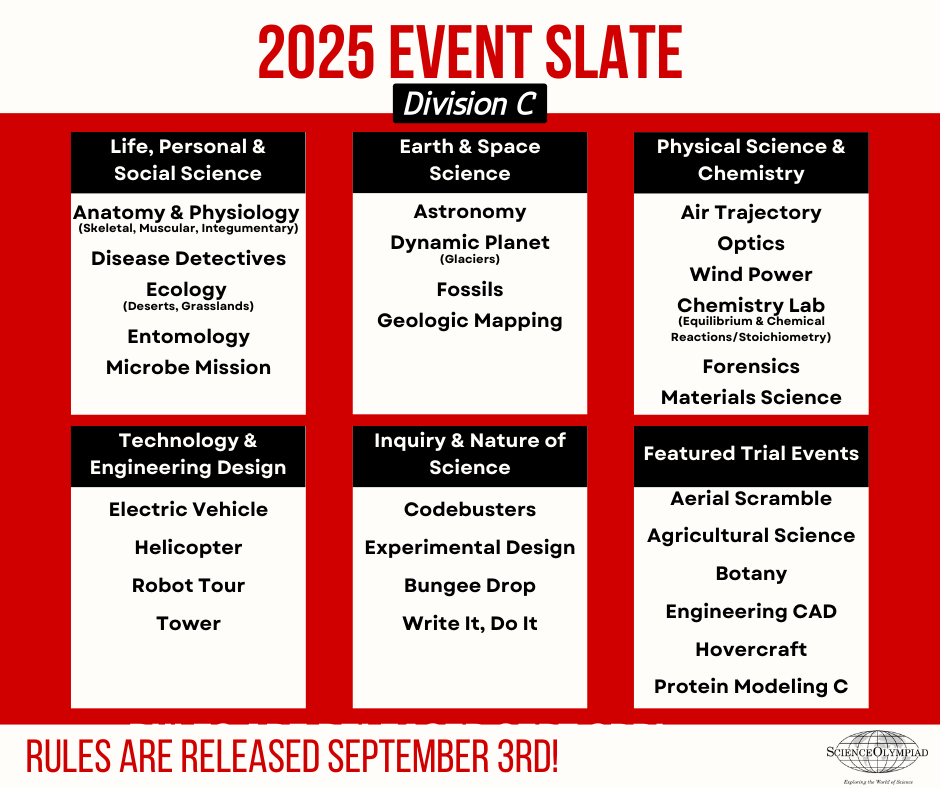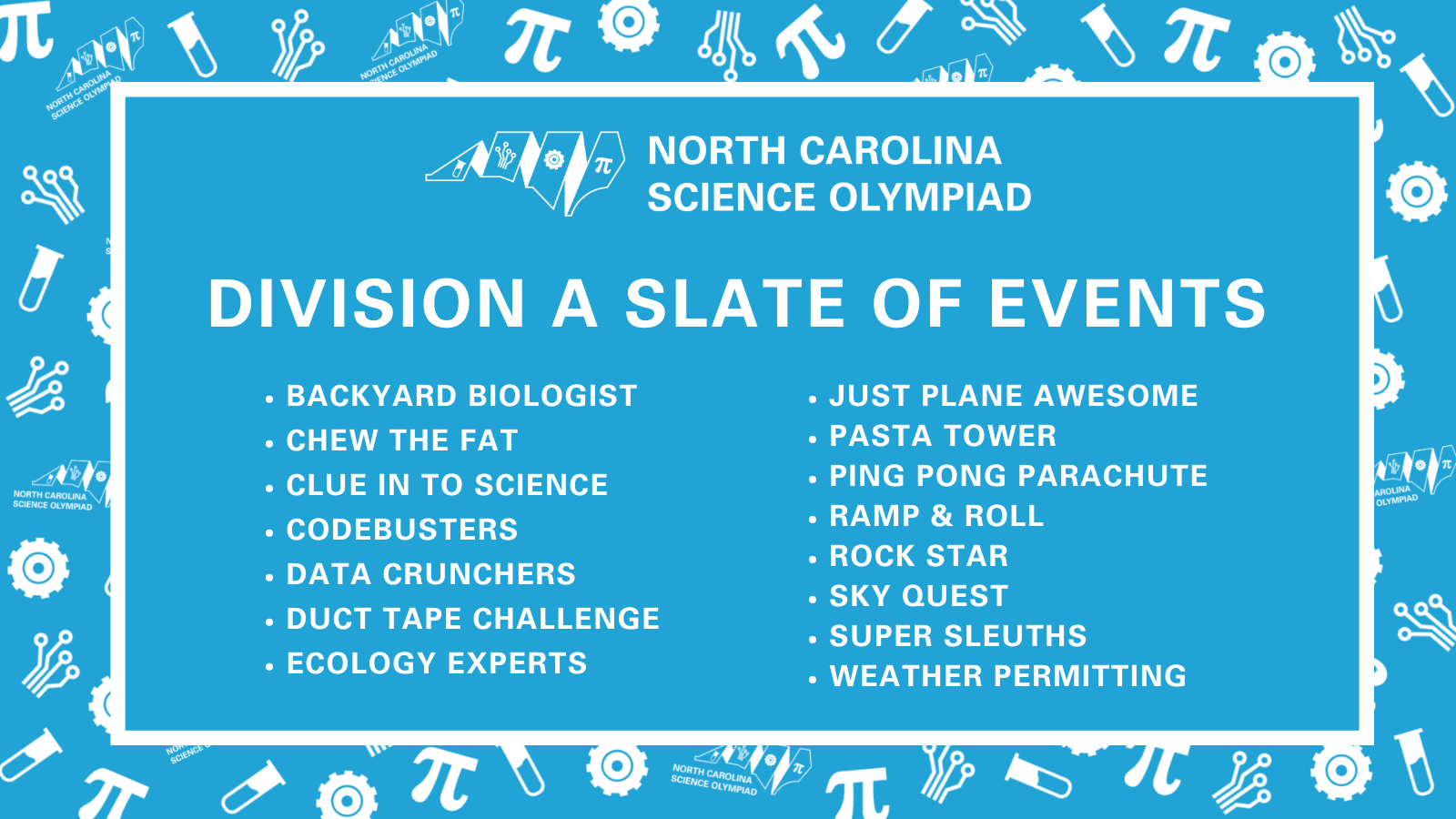Navigating the 2025 Science Olympiad Draft Rules: A Comprehensive Guide
Navigating the 2025 Science Olympiad Draft Rules: A Comprehensive Guide
Introduction
With enthusiasm, let’s navigate through the intriguing topic related to Navigating the 2025 Science Olympiad Draft Rules: A Comprehensive Guide. Let’s weave interesting information and offer fresh perspectives to the readers.
Table of Content

Navigating the 2025 Science Olympiad Draft Rules: A Comprehensive Guide
The 2025 Science Olympiad season is on the horizon, and with it, a new set of draft rules designed to enhance the competition and foster scientific exploration. These rules, while potentially presenting new challenges, ultimately aim to refine the tournament experience for all participants. This comprehensive guide delves into the key aspects of the 2025 draft rules, providing clarity and insight into their impact on the Science Olympiad landscape.
A Shift in Focus: Embracing Innovation and Adaptability
The 2025 draft rules prioritize innovation and adaptability, encouraging teams to embrace new approaches and demonstrate a deeper understanding of scientific principles. Several key changes reflect this shift:
-
Increased Emphasis on Process: The draft rules emphasize the process of scientific inquiry, requiring teams to demonstrate their understanding of the scientific method, data analysis, and problem-solving skills. This shift encourages a more holistic approach to learning and competition, moving beyond rote memorization to a deeper engagement with the scientific process.
-
Emphasis on Sustainability: The 2025 draft rules introduce a focus on sustainability, encouraging teams to consider environmental impact and ethical considerations in their projects and experiments. This shift aligns with the growing importance of sustainable practices in scientific research and reflects the need to address global challenges.
-
Integration of Technology: The draft rules recognize the growing role of technology in scientific research, incorporating elements of digital tools and computational thinking into various events. This integration encourages teams to develop skills in data analysis, programming, and utilizing digital resources, preparing them for the increasingly digital nature of scientific work.
-
Flexibility and Adaptation: The draft rules encourage flexibility and adaptation by introducing new event formats and allowing for more creative approaches to problem-solving. This fosters a dynamic environment where teams can showcase their unique strengths and innovative solutions, promoting a more diverse and engaging competition.
Examining Key Changes and Their Implications:
1. Event Structure and Format:
The 2025 draft rules introduce new event formats and adjustments to existing ones, aiming to enhance the competition’s overall structure. Some notable changes include:
-
New Events: The introduction of new events, such as "Sustainable Design" and "Data Science," reflects the changing landscape of scientific research and encourages teams to explore emerging fields.
-
Modified Event Formats: Existing events may see adjustments to their formats, potentially introducing new challenges and requiring teams to adapt their strategies.
-
Integration of Technology: The draft rules emphasize the integration of technology in events, requiring teams to utilize digital tools and computational thinking skills. This encourages teams to develop a broader skillset and prepare for the increasingly digital nature of scientific work.
2. Rules and Regulations:
The 2025 draft rules introduce changes to existing regulations and introduce new guidelines, aiming to ensure fairness and promote a level playing field for all participants. Key adjustments include:
-
Updated Safety Protocols: The draft rules reinforce safety protocols, emphasizing the importance of safe practices during experiments and ensuring the well-being of all participants.
-
Clarification of Rules: The draft rules aim to clarify existing rules, providing greater clarity and transparency for teams and coaches.
-
New Regulations: The introduction of new regulations, such as those related to sustainability and ethical considerations, reflects the evolving nature of scientific research and the need for responsible practices.
3. Scoring and Evaluation:
The 2025 draft rules introduce changes to the scoring and evaluation process, aiming to ensure fairness and promote a more comprehensive assessment of teams’ abilities. These changes include:
-
Revised Scoring System: The draft rules may introduce changes to the scoring system, potentially adjusting the weight of different aspects of an event or introducing new criteria for evaluation.
-
Emphasis on Process: The draft rules emphasize the process of scientific inquiry, requiring teams to demonstrate their understanding of the scientific method, data analysis, and problem-solving skills. This shift encourages a more holistic approach to learning and competition, moving beyond rote memorization to a deeper engagement with the scientific process.
-
Holistic Evaluation: The draft rules encourage a more holistic evaluation of teams, considering their overall knowledge, skills, and understanding of the scientific concepts involved.
FAQs Regarding 2025 Science Olympiad Draft Rules:
1. What are the benefits of the 2025 draft rules?
The 2025 draft rules aim to promote a more engaging and challenging competition, fostering deeper learning and a broader understanding of scientific principles. The emphasis on innovation, adaptability, and the integration of technology prepares students for the evolving landscape of scientific research and equips them with the skills needed for future success in STEM fields.
2. How do the new event formats impact teams?
The introduction of new event formats and adjustments to existing ones require teams to adapt their strategies and develop new skills. This dynamic environment encourages teams to explore new areas of science, embrace innovation, and showcase their unique strengths.
3. What are the key changes to the rules and regulations?
The draft rules introduce updated safety protocols, clarify existing rules, and introduce new regulations related to sustainability and ethical considerations. These changes aim to ensure fairness, promote responsible practices, and provide a level playing field for all participants.
4. How does the scoring system change in 2025?
The draft rules may introduce changes to the scoring system, potentially adjusting the weight of different aspects of an event or introducing new criteria for evaluation. The emphasis on process and holistic evaluation encourages teams to demonstrate a deeper understanding of scientific concepts and their application.
5. How can teams prepare for the 2025 draft rules?
Teams can prepare for the 2025 draft rules by:
-
Studying the draft rules thoroughly: Understanding the changes and their implications is crucial for successful preparation.
-
Developing a strong foundation in scientific principles: Focusing on the underlying concepts and processes behind each event is essential for success.
-
Embracing innovation and adaptability: Encouraging creativity and problem-solving skills will help teams navigate the new challenges presented by the draft rules.
-
Utilizing digital tools and resources: Integrating technology into practice and familiarizing themselves with relevant software and platforms will enhance their performance.
-
Focusing on sustainability and ethical considerations: Integrating these aspects into their projects and experiments will demonstrate a comprehensive understanding of scientific responsibility.
Tips for Success in the 2025 Science Olympiad:
-
Embrace the changes: Approach the new rules as an opportunity for growth and development, embracing the challenges and opportunities they present.
-
Focus on process and understanding: Move beyond rote memorization to a deeper understanding of scientific concepts and their application.
-
Develop adaptability and critical thinking skills: Encourage teams to think creatively and find innovative solutions to problems.
-
Utilize technology effectively: Integrate digital tools and resources into practice to develop proficiency and enhance performance.
-
Stay informed and updated: Continuously monitor updates and clarifications regarding the draft rules and competition guidelines.
Conclusion:
The 2025 Science Olympiad draft rules represent a significant evolution in the competition, aiming to enhance the learning experience and prepare students for the challenges of the future. By embracing innovation, adaptability, and a deeper understanding of scientific principles, teams can navigate these changes successfully and achieve their full potential in the pursuit of scientific excellence. The 2025 draft rules serve as a testament to the Science Olympiad’s commitment to fostering a dynamic and engaging learning environment, empowering students to become future leaders in STEM fields.




.png)



Closure
Thus, we hope this article has provided valuable insights into Navigating the 2025 Science Olympiad Draft Rules: A Comprehensive Guide. We hope you find this article informative and beneficial. See you in our next article!